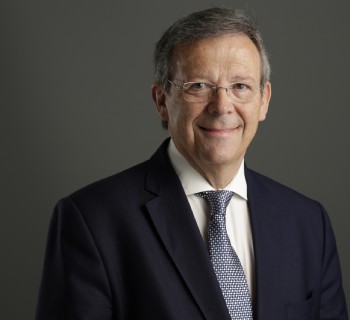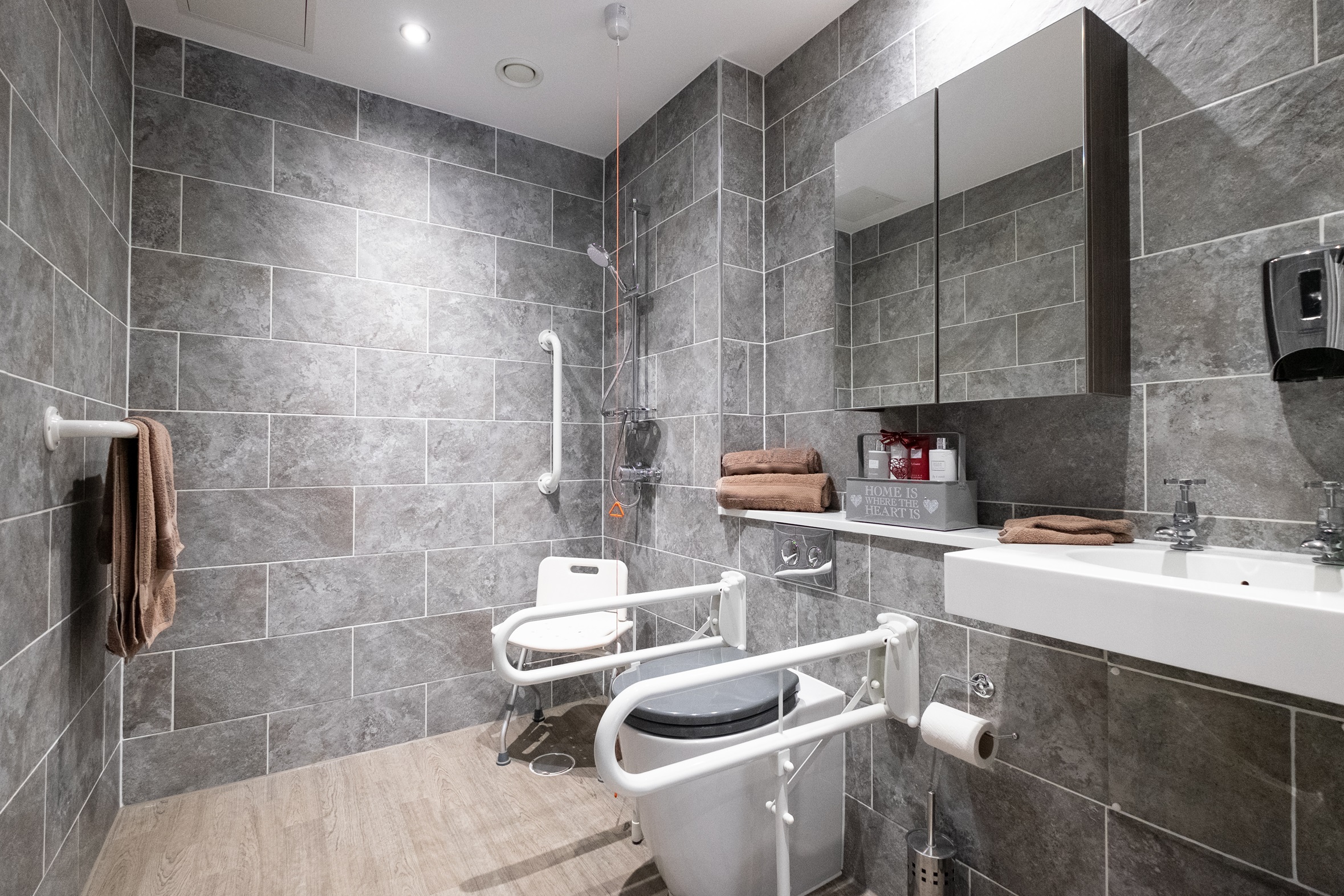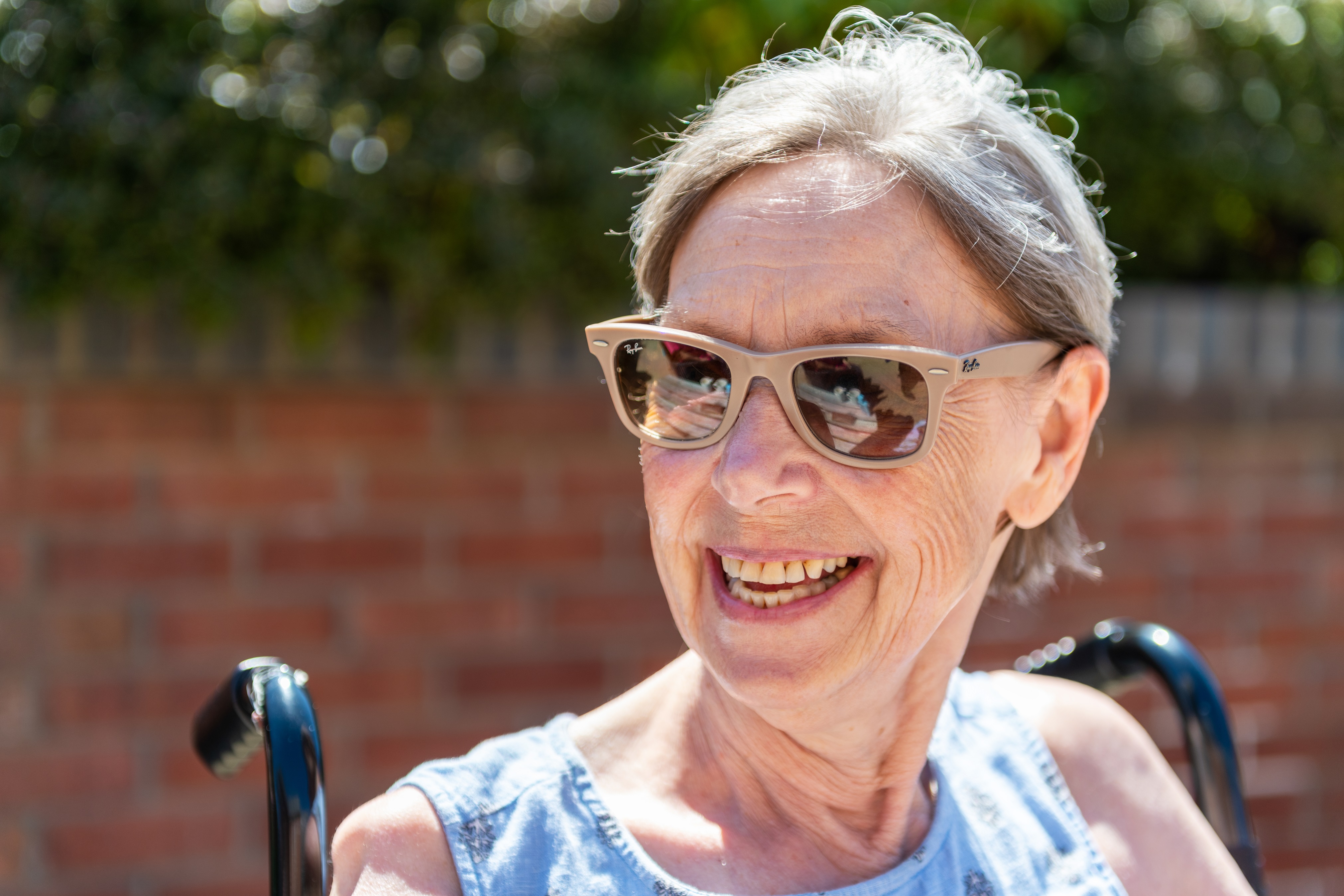The evolution of Target Healthcare REIT
A CEO’s journey. I was first introduced to senior living in 2002 following a recommendation through my business network that I visit some care facilities, including independent living facilities, to gauge the prospect of assisting the business to grow and develop.
As a result of these visits, I recognised the need for a good domiciliary care business to sit alongside any independent living business.
In 2005 to 2007 I was involved in acquiring and then selling out of Scotland's largest privately owned domiciliary care businesses. And by 2008, free of the imposed restrictive covenant, I was ready to get started again in elderly care.
I understood very clearly from my period in domiciliary care that whilst that business model is reasonable, meeting light support needs for our elderly, it is much less relevant where dementia has taken hold and where people suffer from loneliness, especially with the high turnover of staff.
I like to tell the true story of my mother-in-law when she received domiciliary care after breaking a hip. I happened to visit her in her home a month later. The first invoice had arrived through the letter box. It was on the floor. She could not bend down to get it. I handed it to her. “You open it” she said. It was her first bill, and it listed all the carers in the first 31 days of care. 28 names! At that stage she was crystal clear in her mind. But what if that was someone who was forgetful? Is that holistic care at its best?

Therefore, I started to plan for a truly holistic model of care. In August 2008, meeting with a significant American Real Estate investor, we agreed to explore setting up a new property fund in the UK that would invest in modern purpose-built homes and create long stable income for its shareholders. Later that year I had the privilege of meeting the head of property at Scottish Widows, a gentleman called Malcolm Naish. I also met DTZ and Kames Capital (then Aegon Asset Management) and with Scottish Widows as a cornerstone investor, some 15 months later the Kames Target Healthcare Fund was launched, managed externally in a joint mandate between Kames Capital and Target.
That fund began to invest very successfully through 2010 and 2011, but by 2012 we realised that if we were really going to have a serious impact on the quality of elderly care accommodation across the UK, we needed to find additional sources of capital. In the summer of 2012, we started some in-depth test marketing for a new company whereby we would do an IPO in the listed markets of what has become Target Healthcare REIT plc. Formally launched in March 2013 and at one day old it bought its first three properties and more within the following month.
Fast forward to 2025 it is interesting to reflect on how Target Healthcare REIT has grown.
There have been 13 fundraises in the intervening 12 years. These are usually 4-week events of several meetings per day, reasonably intense and focussed on not only the financial models but the ethos and value of the holistic model created on day one. As new and existing investors invested in the fund the team diligently acquired purpose-built properties to meet the needs of our ever-increasing aging population.
Towards the end of the pandemic and into 2023 we found ourselves resolving the challenge of cash drag and its consequent effect on dividend cover. Around that time there was also the significant rise in interest rates, and therefore some of our planned debt was no longer accretive, therefore we brought the dividend into line with our sustainable earnings.
By the end of the pandemic, Target Healthcare REIT had acquired 93 modern purpose built trading care homes, and while a number of them were immature (brand new care homes can take up to 3 years to be mature), the portfolio performed remarkably, collecting 96% (to date) of rent over the period of the pandemic, a particularly challenging time for the sector.
We have further improvement in rent covers across the portfolio, currently achieving around 1.9x rent cover and at present, we are in a stable position with a stable dividend covered by the rent that is received.

When our journey began in 2008-9 only 8 or 9% of the bedrooms in the UK had wet rooms.
In 2013 when the Target Healthcare REIT was launched 13% of the bedrooms in the UK had wet rooms and in 2025 34% have wet rooms.
We are delighted that around a third of our elderly in the UK now have an improved standard of accommodation and we are absolutely on a mission to continue this positive trajectory meaning substantially more of our elderly will be cared for in appropriate real estate with dignity.
What differentiates Target Healthcare REIT from others in the market?
In the early 2000s, I travelled widely in the USA and saw what Sunrise Senior Living and other modern providers were providing to the senior citizens in their care.
From my experience in domiciliary care, I determined that that was a thoroughly unsatisfactory model for the elderly with significant amounts of frailty, loneliness, dementia or Alzheimer's.
Therefore, there was an imperative need to create a product that was truly fit for purpose for the next century of our aging population and provide an opportunity for wise (philanthropic/responsible) investment from institutions.
The major provider of property assets in the UK 15 years ago was a company called Quercus, which had been heavily backed by major institutions and over time had invested significantly in the product that was available in the 1990s, a product that had no wet rooms though some of it had ensuites… more on that later.
In our early years of working together in the fund management business, we realised that through the tendering process, our homes would always be the preferred option when side by side with Querus. Ours were modern, purpose-built, complete with wet rooms and vastly ahead of the aged stock that existed within their portfolio.
As could be expected Quercus continued to slim down and sell the poor assets it owned and ultimately it was taken over by other investors and sold on in a much slimmed-down form to others. It is now part of a foreign owned portfolio.
It is probably useful at this stage to explain the total quantum of beds in the UK over the last 15 years. Currently there are about 450,000 beds for elderly in the UK and when we entered the market about 40,000 of these beds had “wet rooms”. Now what do I mean by a wet room?
- For every bedroom in the UK at that stage, there was about 100,000 bedrooms with no adequate facilities whatsoever, perhaps at best a wash hand basin in the corner of the bedroom.
- 300,000 bedrooms had ensuites and on the face of it that was very modern. But when you inspected these ensuites you realised, they were not used. The ensuites merely had a wash hand basin and a WC, no showering or bathing facilities. They were too small for a frail resident and carer to enter. Therefore, sharing a common shower room/bathroom was the inevitable result, maybe a dozen people had to share such a facility. And that was plainly unacceptable for our elderly.
- The point for us all to recognise is that 70% of the residents in a care home are either singly or doubly incontinent. The core question for us all in this sector is, would we want our personal care (i.e. our continence pads changed because we have continence issues) carried out with dignity in the privacy of our own bedroom? Or in a common bathroom shared with other residents? Imagine the start of the day when you must wait in line for to use the bathroom facility.
"Target set out differentiating its strategy. To provide real estate that provided for human dignity."

How do the Target values and vision guide our decision making?
From the very beginning of Target's existence, it was extremely important that the original four of us, John, Andrew, Tiahna and myself, to reflect on what kind of people we were and what kind of people we wanted the business to work with. And to that end we were quite specific on how we would work together. We laid out some core values, we were honest about our own strengths and weaknesses, and we spoke frankly about them. The values we established at the outset created the basis for how we would work together for the proceeding years and how we would recruit and welcome others into the team.
- We would collaborate well together - we want to work together and develop a culture where it's easy to communicate and work well.
- We recognised the importance of being professional. We were creating a business of an institutional nature, and we needed to be seen to do that well.
- Integrity would be essential; we want to be known as people of our word, and we set out to do that in a very clear way from the beginning.
- We committed to being open about who we were - we do not want to hide, we want to explain plainly what we expect.
- We recognised the need for respect, respecting one another's abilities. Andrew was always the great carer, John was very analytical and excellent with numbers and words, I was more of the creator and Tiahna always into the detail and how we could deliver for each other.
- We agreed that care was paramount. To care for each other, to care for our investors, to care for our advisors and to care for the residents and our tenants because at the end of the day that is the mission.
- To do all these things well, we wondered if we might get too proud of ourselves so we listed also that humility would be an important value. We know we have been given many privileges and especially as we look back, we recognise the privileges we have been given in terms of the capital that we have to invest.
- Finally, and arguably the most important, we acknowledged that we are fallible human beings that need forgiveness and sometimes on this journey we will need to forgive each other. We have that unusual value of forgiveness as a core part of how we go about working together and making wise decisions.
"Each of us would like holistic personal care in the privacy of our own bedrooms with suitable facilities that can be used with ease. Maintaining our dignity and respect and providing a better caring environment for the carers to work in."
Part of this philosophy comes from the background of what we had seen in the sector. The sector has been bedevilled by investors coming in and out, making quick turns, in private equity type deals while the carers who do the work get left behind. And they are on minimum wage!
But we believe investing in elderly care needs to be a long-term business. It is essentially a people business; we want to work with owners and operators who are fully aligned with the needs of their residents who want a quiet and peaceful life and to live well the remaining days that they have. And as part of that the owners and operators need to find fabulous, caring, loving carers who will be committed to the long term. For us it was alien for the capital that comes into this to be of a much more short-term nature and as part of ensuring that we were aligned with that, we set out to create all of these values.
The next subject that we considered was what would be our long-term strategy. When we set out 15 years ago, we recognised that in the coming decades there would be a more than doubling of the over 85s in the United Kingdom. At the beginning of our business, of the 450,000 beds in the UK approximately only 40,000 of them had suitable bedrooms in terms of ensuite wet rooms. Therefore, from day one many of the bedrooms need to be replaced.
As we look at the state of the market in the UK in 2025, we recognise that there are still 300,000 rooms (67%) that are truly not for purpose and which none of us would ideally want our loved ones to reside in during this vital part of their lives.
We have a proven long-term strategy that places us at the forefront of the elderly care home sector in the UK, providing our residents with a much better quality of life and with continued growth providing long term income stability and capital returns for Target Healthcare REIT shareholders.
Kenneth MacKenzie, Chief Executive. March 2025
---
Important Information
Target Advisers LLP and Target Fund Managers Ltd (together ‘The Company’)
The views that are expressed are those of the individual employees/members within the Company and should not be considered as advice or a recommendation to buy, sell or hold a particular investment. They reflect personal opinions and should not be taken as statements of fact nor should any reliance be placed on them when making investment decisions. This communication was produced and approved on the stated date and has not been updated subsequently. It represents views held at the time of writing and may not reflect current thinking. Target Fund Managers Ltd is authorised and regulated by the Financial Conduct Authority in the UK. Persons resident or domiciled out with the UK should consult with their professional advisers as to whether they require governmental or other consents in order to enable them to invest and their tax adviser for advice relevant to their own circumstances. All investment strategies have potential for profit and loss. All information is sourced from the Company and is current unless otherwise stated
